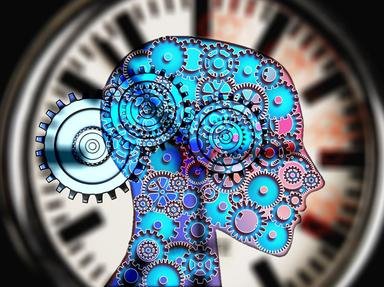Quiz Answer Key and Fun Facts
1. What is the unusual delusional belief present in Cotard's syndrome?
2. What is the delusional belief in Capgras' syndrome?
3. Anhedonia is a very common symptom in depressive illnesses. What is it?
4. Of what can auditory hallucinations (hearing noises or voices that are not there in reality) be a symptom?
5. What is the central abnormal belief in the condition known as koro?
6. What is trichotillomania?
7. How would you recognise if someone was catatonic?
8. Another unusual delusion is Ekbom's syndrome (which may be accompanied by formication). What do sufferers from this syndrome believe?
9. What do you fear if you have ailurophobia?
10. What do you fear if you have mysophobia?
11. In terms of the likelihood of it leading to harm to others, which of these issues needs to be taken most seriously?
12. People on the autistic spectrum are not able to feel love or other emotions for other people.
13. Which of these is a test for psychopathy?
14. The ICD-10 is a diagnostic tool which defines disorders in medicine, including psychiatry, by their symptoms. What does ICD stand for?
15. What illness would you be likely to be suffering from if you presented with a pill-rolling tremor which occured when you tried to do something but which stopped when you were at rest?
Source: Author
NikkidT
This quiz was reviewed by FunTrivia editor
rossian before going online.
Any errors found in FunTrivia content are routinely corrected through our feedback system.
